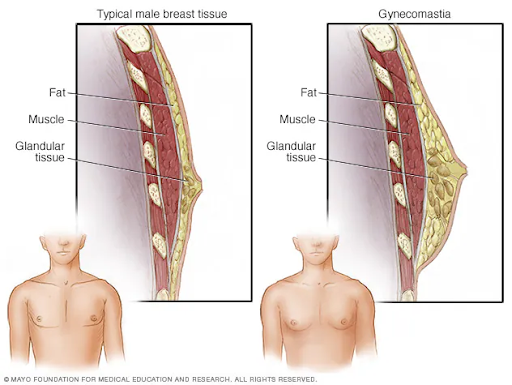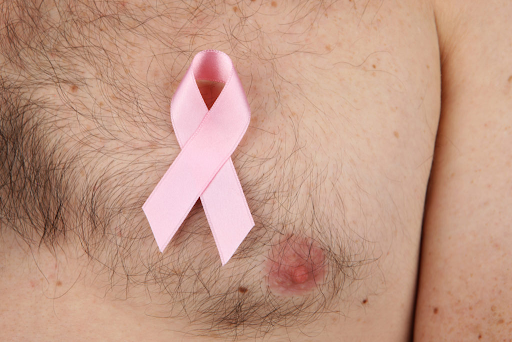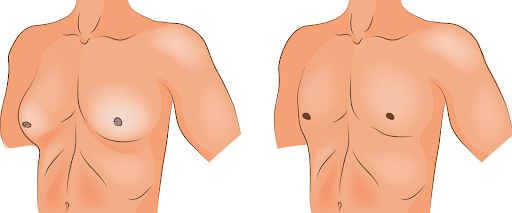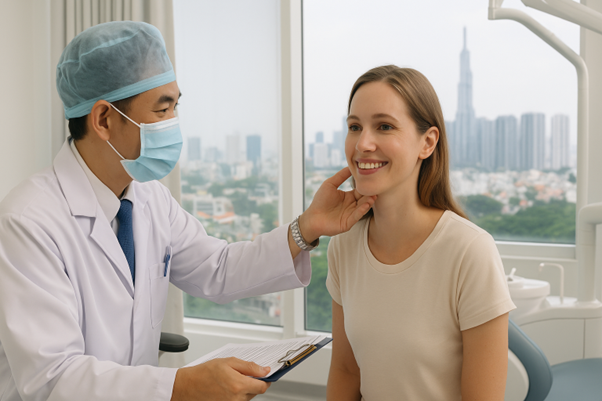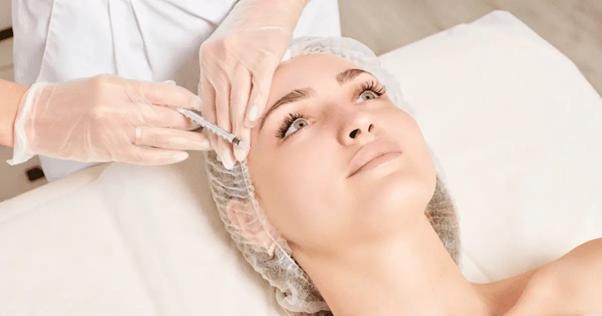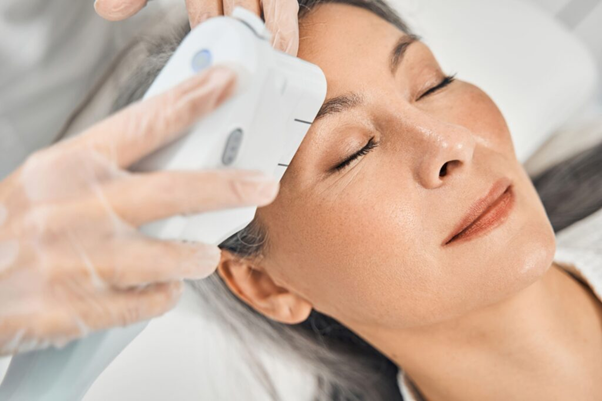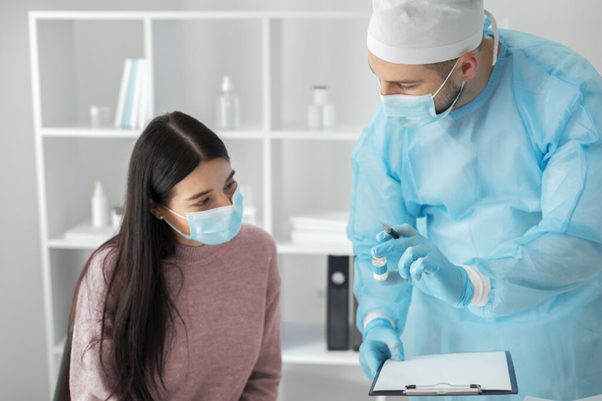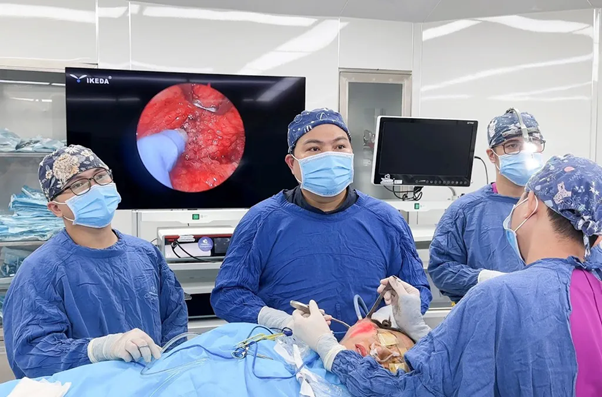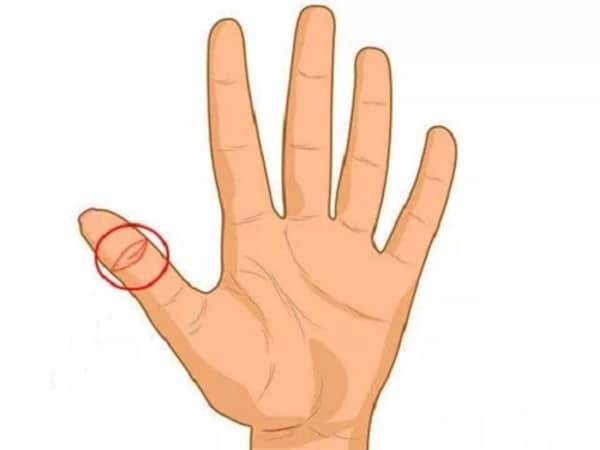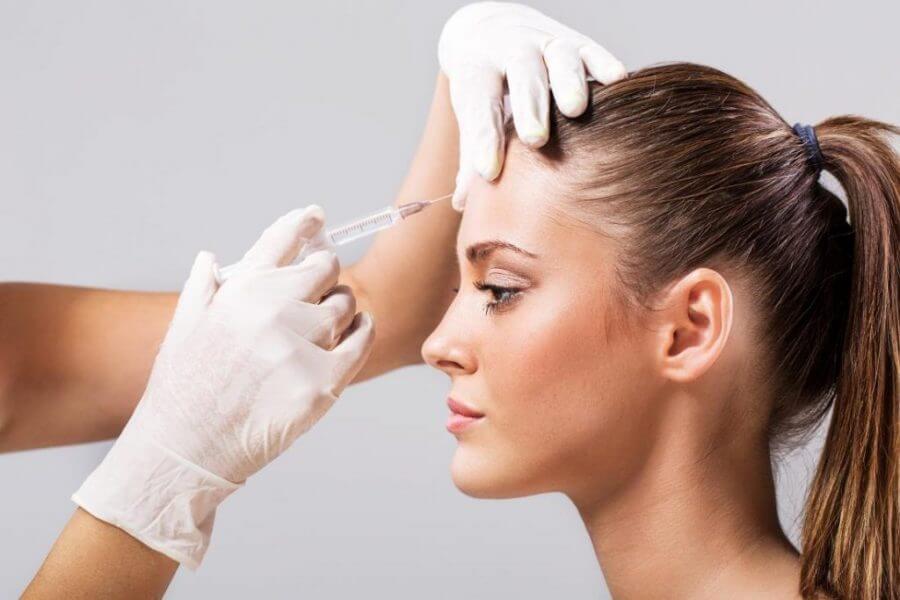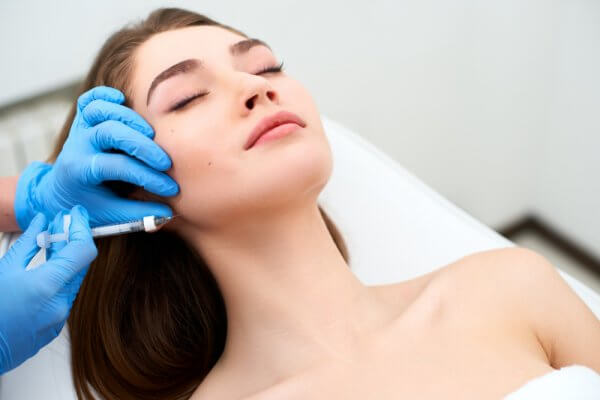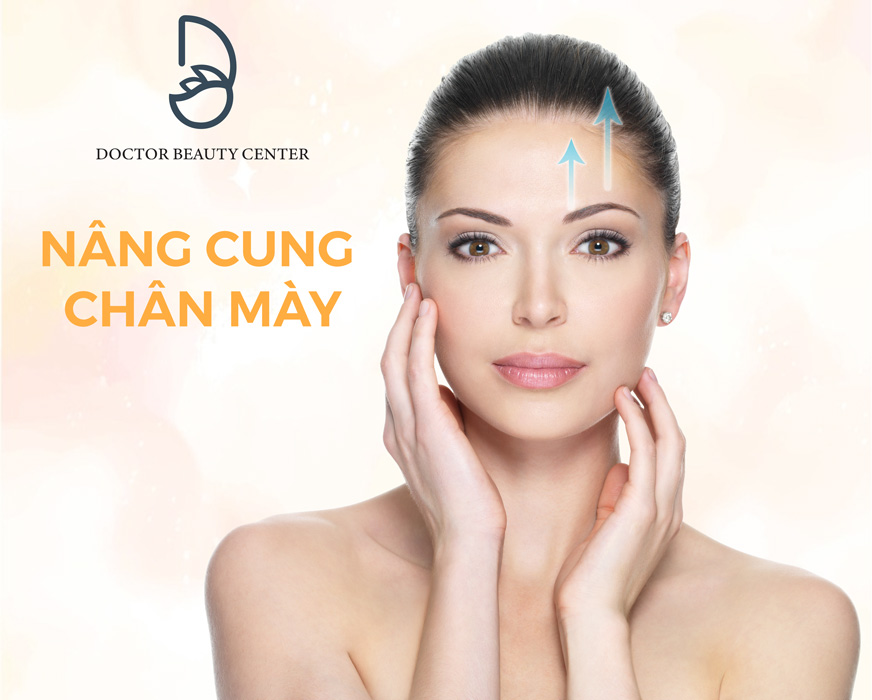Male breast disease, though less commonly discussed than female breast conditions, is a real and growing health concern. Many men often feel embarrassed or hesitant to address changes in their chest area, assuming breast-related problems are only for women. However, male breast disease can manifest in several forms, from benign growths such as gynecomastia to more severe conditions, including male breast cancer. Understanding the basic reasons behind these issues is crucial not only for prevention but also for early detection and effective treatment.
The most common causes of male breast disease, ranging from hormonal imbalances to lifestyle choices and genetic predispositions
Hormonal imbalances of male breast disease
One of the most fundamental causes of male breast disease lies in the delicate balance between the hormones testosterone and estrogen. While testosterone is the primary male hormone, men naturally produce small amounts of estrogen as well. Problems arise when this balance shifts, leading to elevated estrogen levels or reduced testosterone activity.
Such imbalances may cause breast tissue to grow abnormally, resulting in gynecomastia, a condition that leads to swelling or enlargement of male breasts. Hormonal disruptions can occur during puberty, middle age, or older age. They can also be triggered by health issues such as testicular dysfunction, thyroid disorders, or liver disease. Even minor hormonal fluctuations may have visible effects, which is why hormone-related causes are often considered the first explanation for male breast disease.
Medication side effects
Certain medications are known to interfere with hormone levels and contribute to male breast conditions. Drugs used to treat high blood pressure, heart problems, stomach ulcers, psychiatric disorders, or prostate conditions can sometimes lead to breast enlargement in men. In addition, long-term use of anabolic steroids, which are popular among athletes and bodybuilders, significantly increases the risk of developing gynecomastia.
Chemotherapy drugs and treatments for prostate cancer that block testosterone may also alter hormone balance, making men more susceptible to breast tissue changes. Because medication use is often ongoing, the effects may gradually appear and sometimes go unnoticed until the condition becomes more advanced.
Recognizing these reasons helps men become more proactive about their health and reduces the stigma around seeking medical attention for breast-related conditions.
Many risks can be minimized through healthier habits, regular check-ups, and awareness of family medical history
How lifestyle factors affect ?
Modern lifestyles play a major role in the increasing prevalence of male breast disease. Excessive alcohol consumption, recreational drug use (such as marijuana or heroin), and smoking are all linked to hormonal disturbances that affect breast tissue.
Obesity is another critical factor. Fat cells not only store energy but also convert testosterone into estrogen, leading to higher estrogen levels in overweight men. This process increases the risk of breast enlargement and related disorders. Poor diet, lack of exercise, and high stress levels can also exacerbate the problem. Together, these lifestyle habits create an environment where male breast disease is more likely to develop.
About genetic predisposition
Although lifestyle and environmental factors contribute heavily, genetics also play a role. Men with a family history of breast disease, particularly male breast cancer, carry a higher risk. Mutations in genes such as BRCA1 and BRCA2, which are more commonly associated with female breast cancer, can also increase susceptibility in men.
In some cases, genetic disorders such as Klinefelter syndrome, which results in an extra X chromosome, can cause hormonal abnormalities that lead to gynecomastia or other breast problems. Genetic influences may not always be preventable, but awareness allows for closer monitoring and early detection of any suspicious changes.
Age-related changes
Age is another unavoidable factor contributing to male breast disease. During puberty, temporary hormonal fluctuations often lead to enlarged breast tissue in boys. While this usually resolves on its own, it can sometimes persist into adulthood.
As men grow older, natural declines in testosterone levels can tip the balance toward estrogen dominance. This makes elderly men more prone to gynecomastia as well as male breast cancer. Moreover, aging brings increased risk of other medical conditions and medications that indirectly influence hormone levels, further contributing to breast-related issues.
Recognizing that men can experience breast disorders just like women helps to remove the stigma and encourage more open discussion.
Underlying health conditions
Several chronic diseases can increase the risk of male breast disorders. Liver disease, for example, can interfere with hormone metabolism, allowing estrogen levels to rise. Kidney failure and thyroid disease are also known contributors. Testicular tumors, pituitary gland problems, or adrenal gland disorders may cause direct hormonal disruption that manifests as breast disease.
Even infections or trauma affecting the testicles can alter hormone production, creating long-term consequences for breast tissue. Because these conditions often develop silently, men may only notice symptoms when physical changes in the chest area appear.
Environmental exposure
Modern environments are filled with chemicals and toxins that can disrupt hormonal balance, known as endocrine disruptors. Substances found in plastics, pesticides, and certain industrial chemicals may mimic estrogen in the body. Prolonged exposure to these compounds may gradually influence male breast tissue, leading to abnormal growth or increased cancer risk.
Though often overlooked, environmental causes are increasingly recognized by researchers as contributing factors to male breast disease. This highlights the importance of awareness not only of personal habits but also of the environments men live and work in.
Male breast cancer
Although rare, male breast cancer is a serious condition that must be addressed. It often develops due to a combination of factors, including genetics, age, hormone imbalances, and environmental exposure. Unlike female breast cancer, which is widely publicized, male breast cancer tends to go undiagnosed until later stages because men are less likely to seek medical advice for breast-related symptoms.
Signs such as lumps, nipple discharge, or skin changes should never be ignored. Early detection dramatically improves outcomes, but awareness remains the first step in encouraging men to overcome hesitation and prioritize their health.
Prevention, awareness, and the right medical guidance together create the strongest defense against this often-overlooked health issue.
Psychological and social impact
Beyond physical causes, the emotional and psychological aspects of male breast disease are significant. Many men feel embarrassed, anxious, or less confident when dealing with breast enlargement or other symptoms. This stigma often prevents them from seeking medical help early, leading to delayed diagnosis and treatment.
Understanding that male breast disease is a medical condition—not a personal flaw—helps reduce the emotional burden. Encouraging open conversations and professional consultations can make a substantial difference in men’s overall well-being.
Most importantly, early detection remains the key to successful treatment and improved quality of life.
Why choose Dr. Harvard beauty surgery clinic?
At Dr. Harvard Beauty Surgery Clinic, we understand the sensitivity and complexity of male breast conditions. Our team of highly skilled specialists combines advanced diagnostic methods with personalized treatment plans to ensure that every patient receives the care they deserve. Whether you are seeking solutions for gynecomastia, exploring surgical options, or simply in need of professional advice, we provide safe, effective, and discreet care in a modern clinical environment.
Your health, confidence, and comfort are our priorities. By choosing Dr. Harvard Beauty Surgery Clinic, you are choosing expertise, trust, and results you can rely on. Let us help you take the first step toward restoring your confidence and improving your quality of life.

